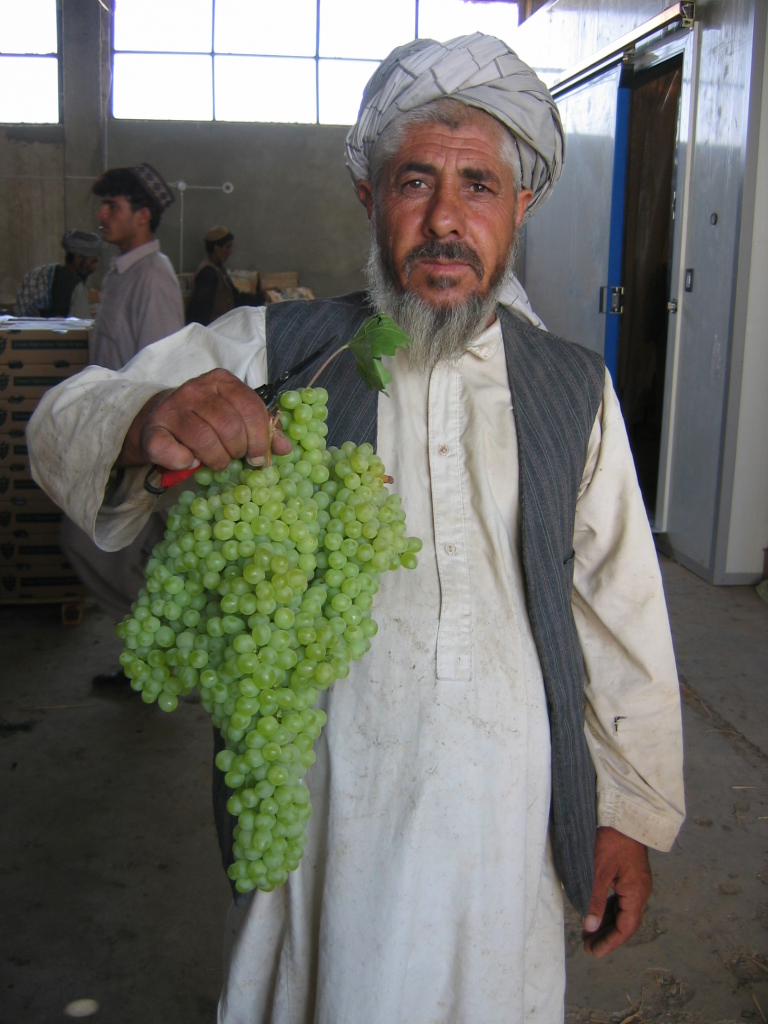
A farmer shows off grapes grown in a field de-mined by Roots of Peace. All photographs Roots of Peace
| Location | Croatia, Afghanistan, Angola, Cambodia, Iraq |
| Date | 1997–present |
| End Clients | Farmers and schools |
| Project Team | Heidi Kühn, Gary Kühn, Kyleigh Kühn, Brooks Kühn, Tucker Kühn, Christian Kühn |
| Project Partners | HALO Trust, M.A.G., Chemonics, AgLand |
| Cost | $1,000 per land mine |
| Major Funding | USAID, US State Department, individual donations |
| Website | www.rootsofpeace.org |
Land mines are like anonymous terrorists, killing or maiming one person, usually an innocent civilian or de-miner, every 22 minutes.
They are inexpensive to produce (the cost of a hamburger), expensive to remove, and can be set off with less than eight pounds (3.6 kg) of pressure. More than 70 million are planted in over 70 countries, waiting for victims.
The effects don’t end there. Landmines stifle transportation routes and make agricultural fields inaccessible, crippling economies. Founded in 1997 by Heidi and Gary Kühn, the nonprofit Roots of Peace turns minefields back into working agricultural land through a program called Mines to Vines. Beginning in 1998 the group de-mined six Croatian villages, making way for vineyards to be planted. Currently in Afghanistan the group grows grapes, pomegranates, and almonds, and in Angola it plans to plant bananas and other subtropical fruits in former mine fields.
In 2003 Kyleigh Kühn followed in her parents’ footsteps by raising funds from children to create safe places for children to play in Afghanistan. Through the program, called “Making Change Work,” children across the United States raised 7,000,000 pennies to pay the cost of clearing minefields and turning them into soccer fields. So far by partnering with de-miners from the HALO Trust, a UK-based de-mining group, Roots of Peace has created two playing fields, one at a boys’ school in Bagram, the other at a girls’ school in Parwan province. The group has also de-mined a field next to the Bajgah village school in Baghlan province.
All three sites are located in Northern Afghanistan, which over the last two decades has seen some of the country’s fiercest fighting and where roads and fields are littered with mines. Despite lingering fear in the community, the “Making Change Work” soccer fields are in constant use: At the boys’ school in Bagram students play in the morning; by midday former child soldiers are kicking a ball around; and in the afternoon aid workers and local men wind down with informal games.
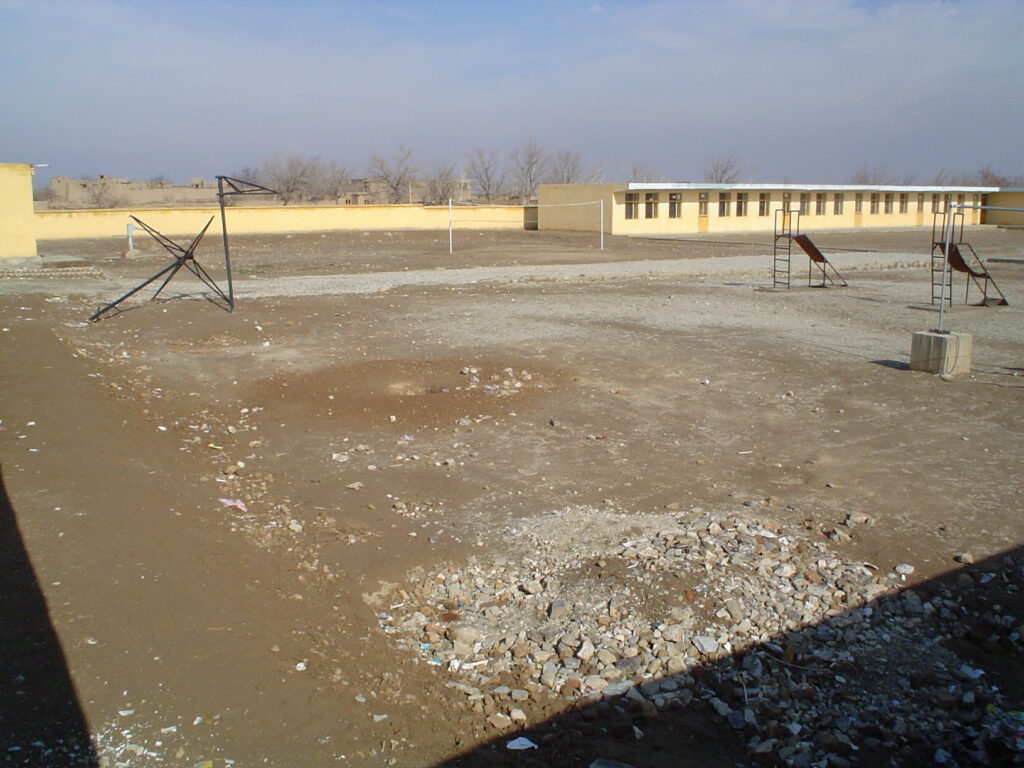
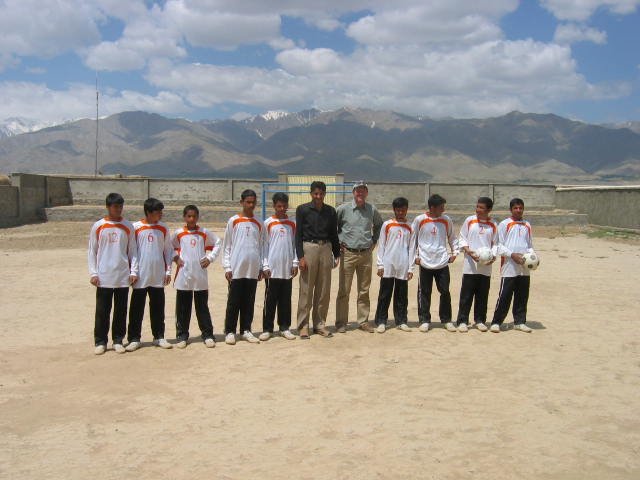
left: The grounds of the Bagram Boys School near Kabul, Afghanistan, were unsafe for play until a de-mining team cleared them of mines and unexploded ordnance.
right: The Bagram boys’ soccer team with Gary Kühn (center) in the newly de-mined school grounds
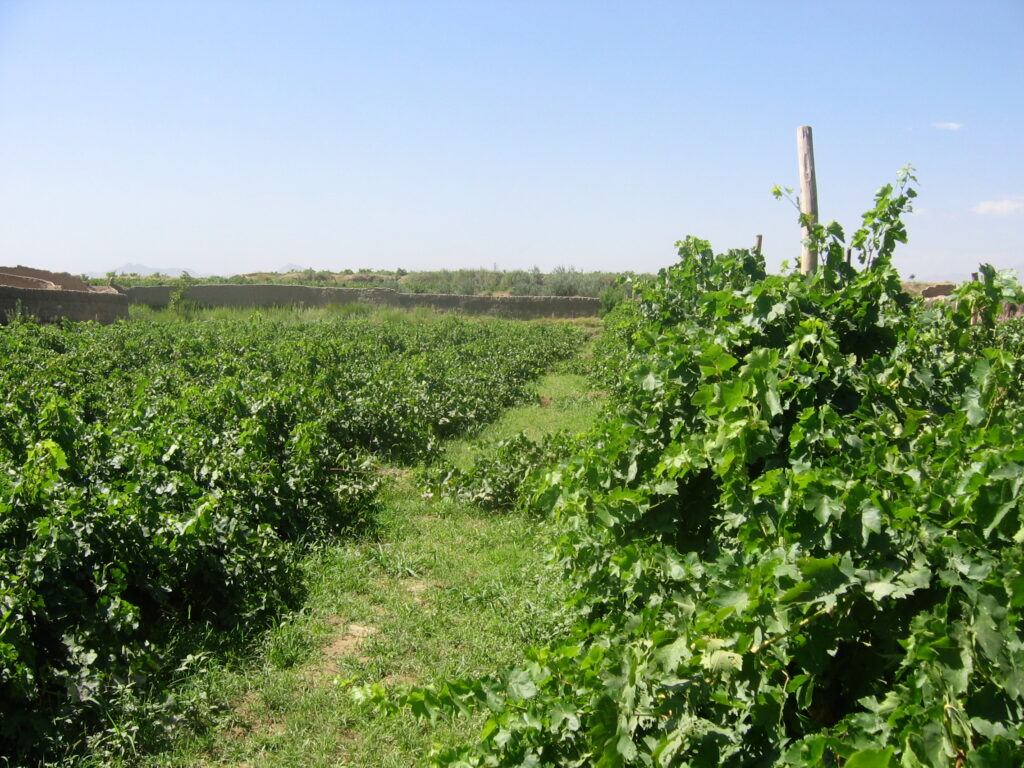
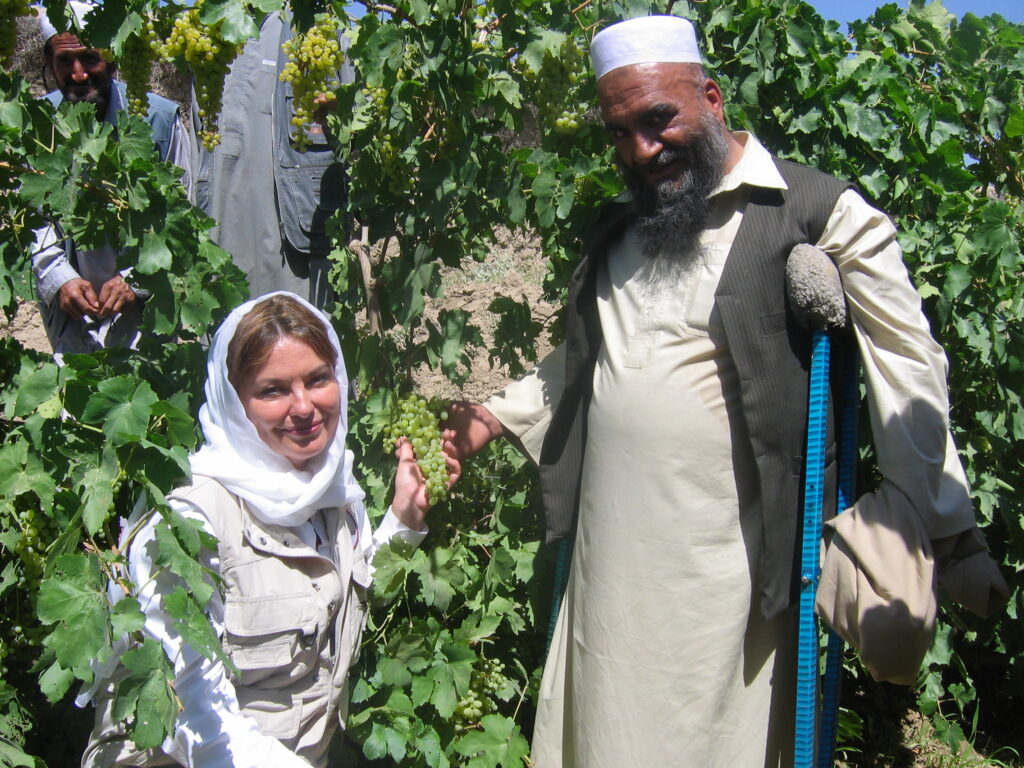
left: After de-mining the fields the group trellises the vines. Lifting the vines from the ground prevents mold, increasing the crop yield.
right: Heidi Kühn with a farmer whose field was de-mined, in his vineyard in the Shomali Plains north of Kabul
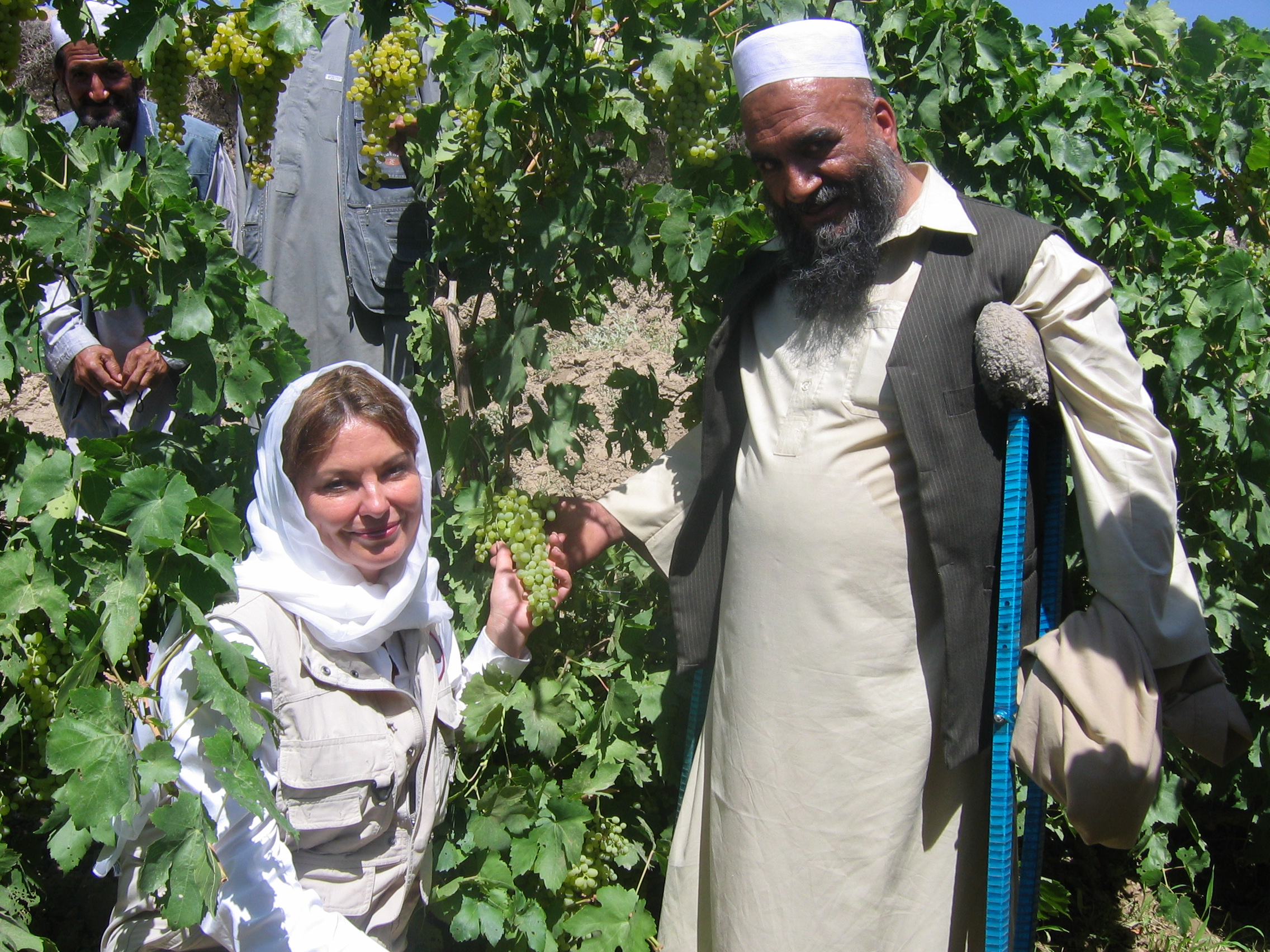
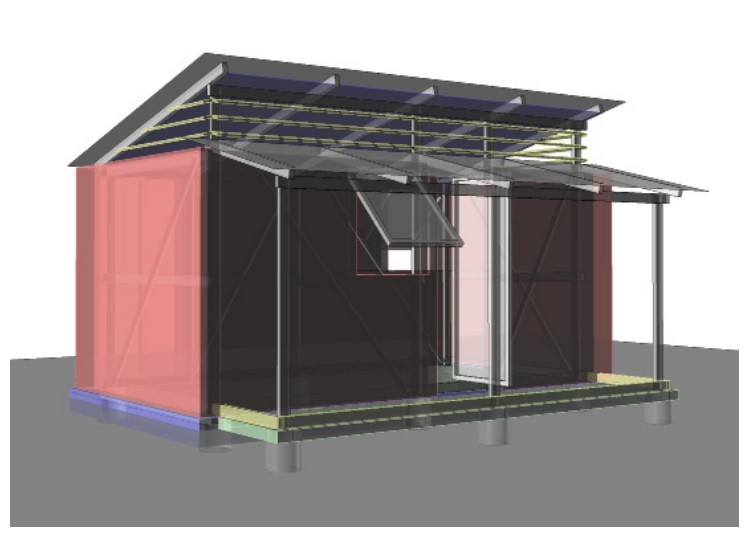
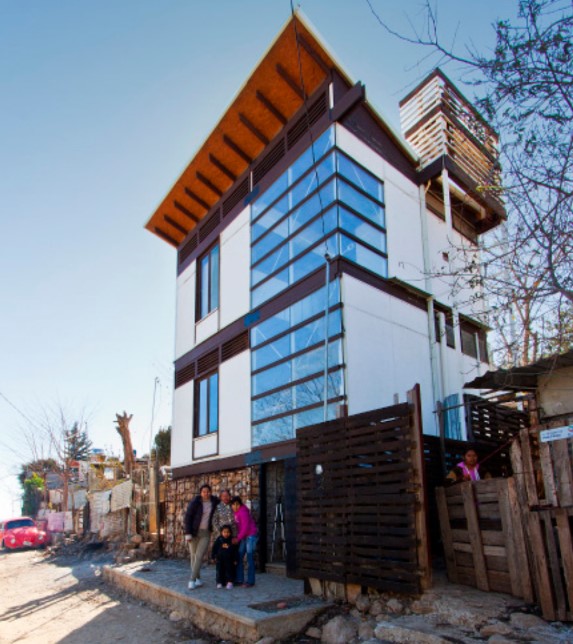
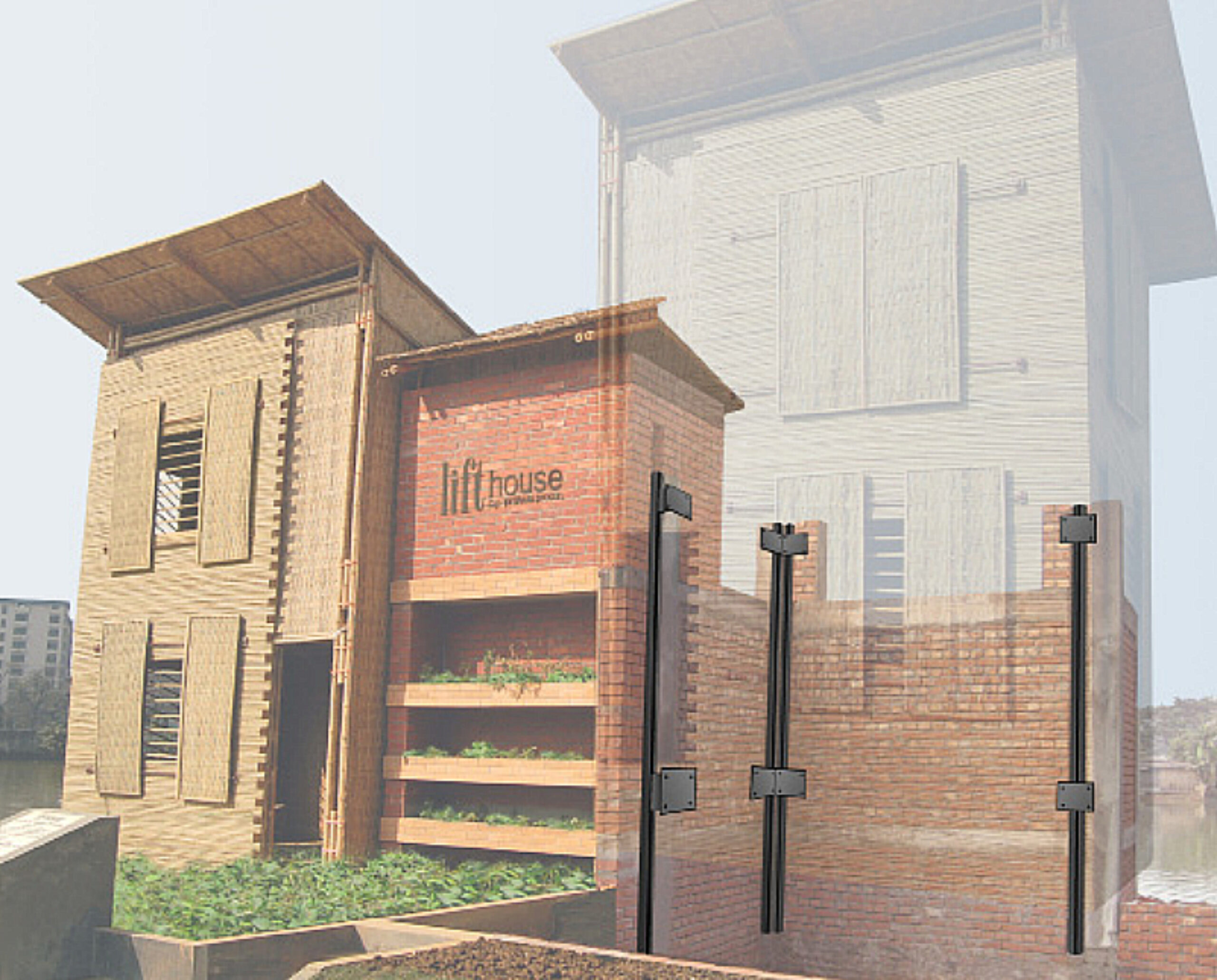

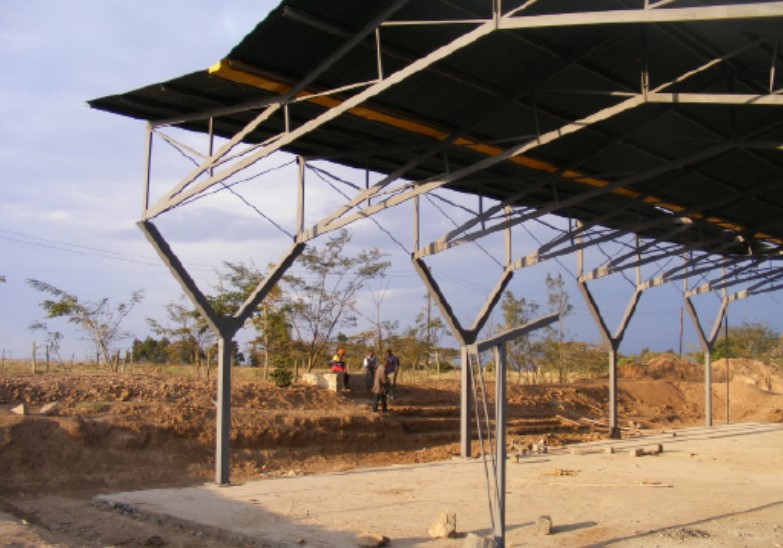
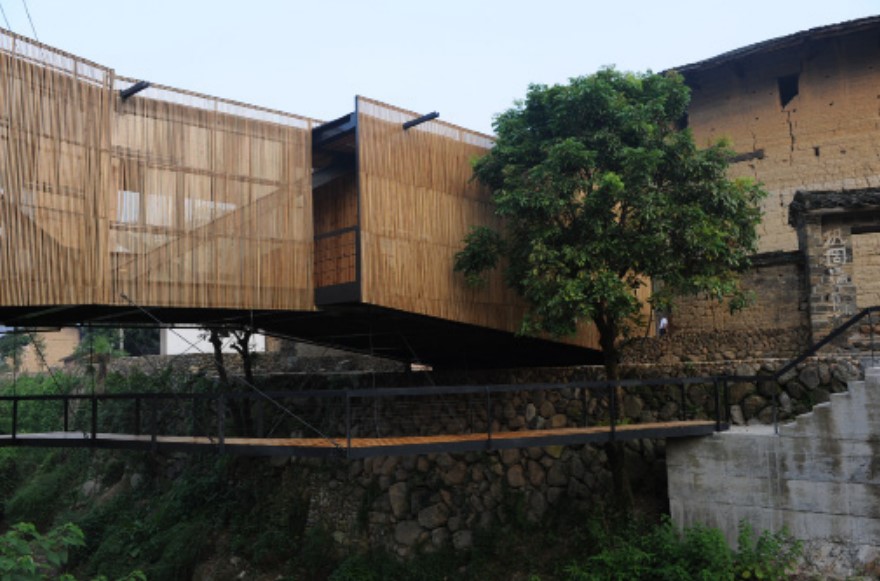
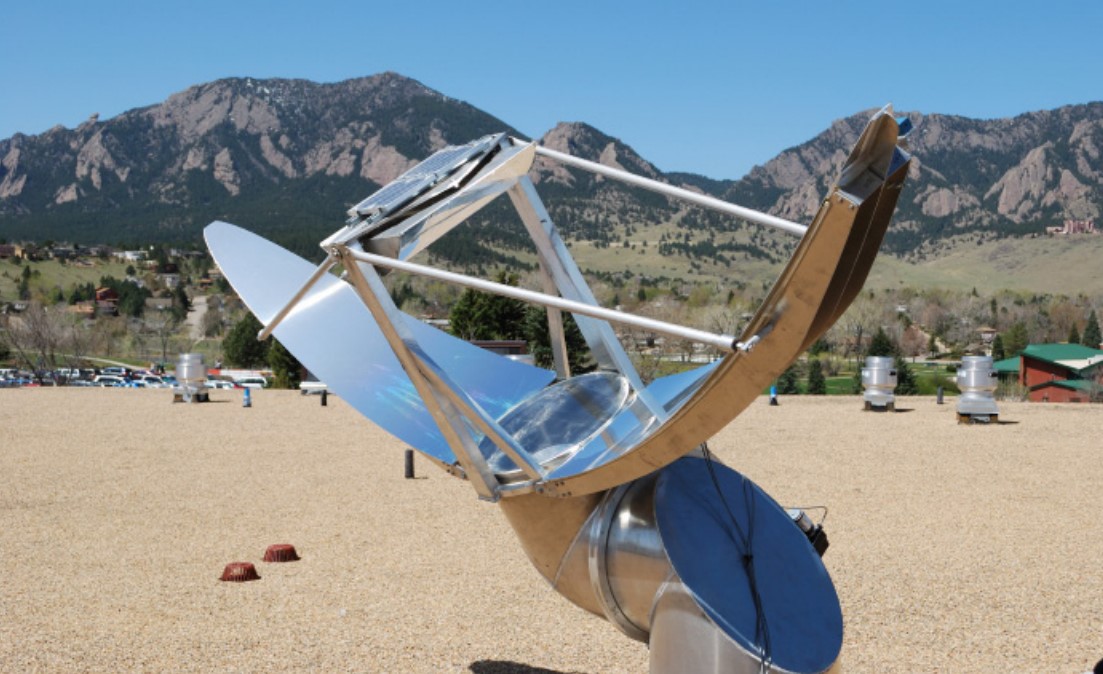
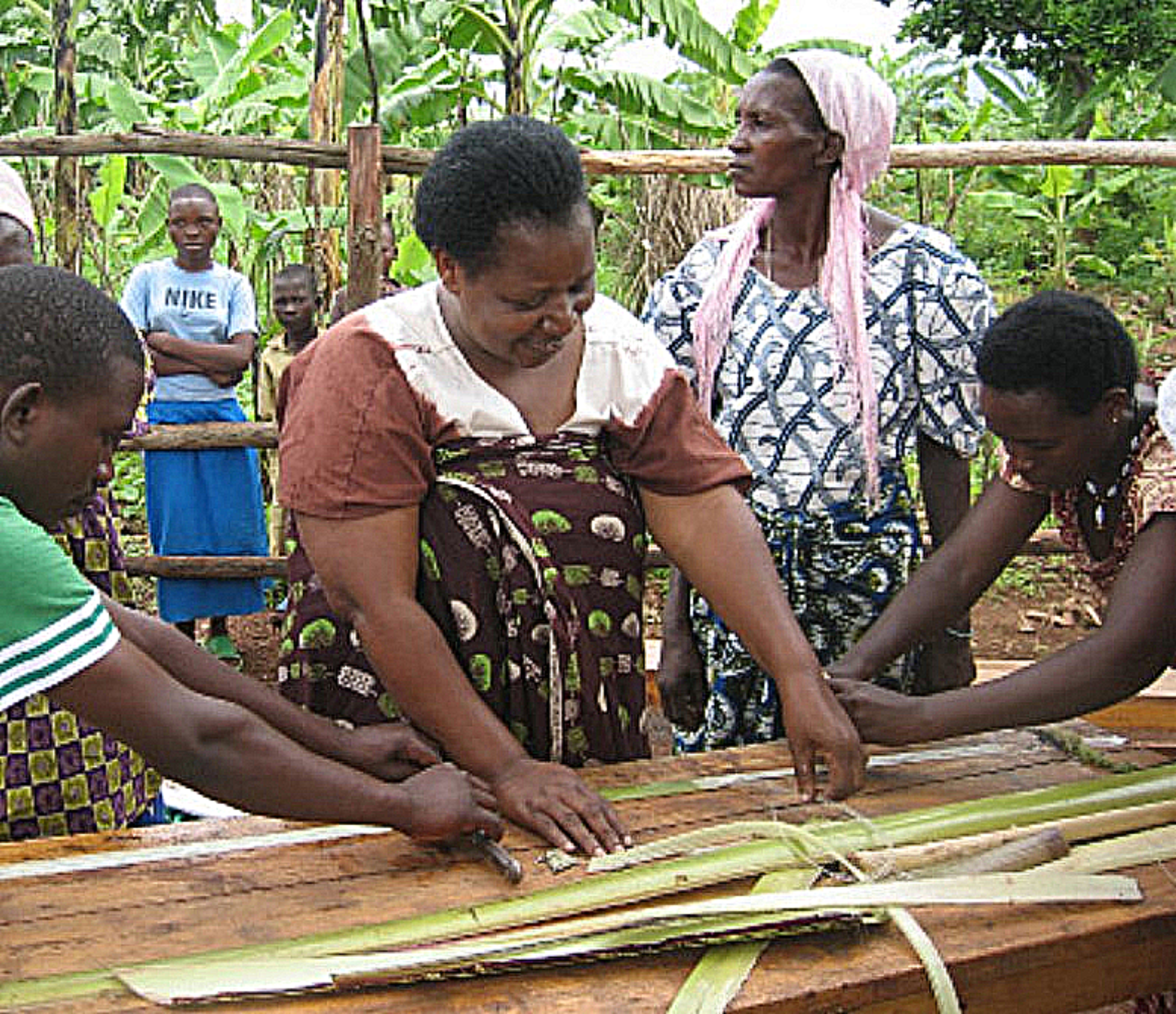
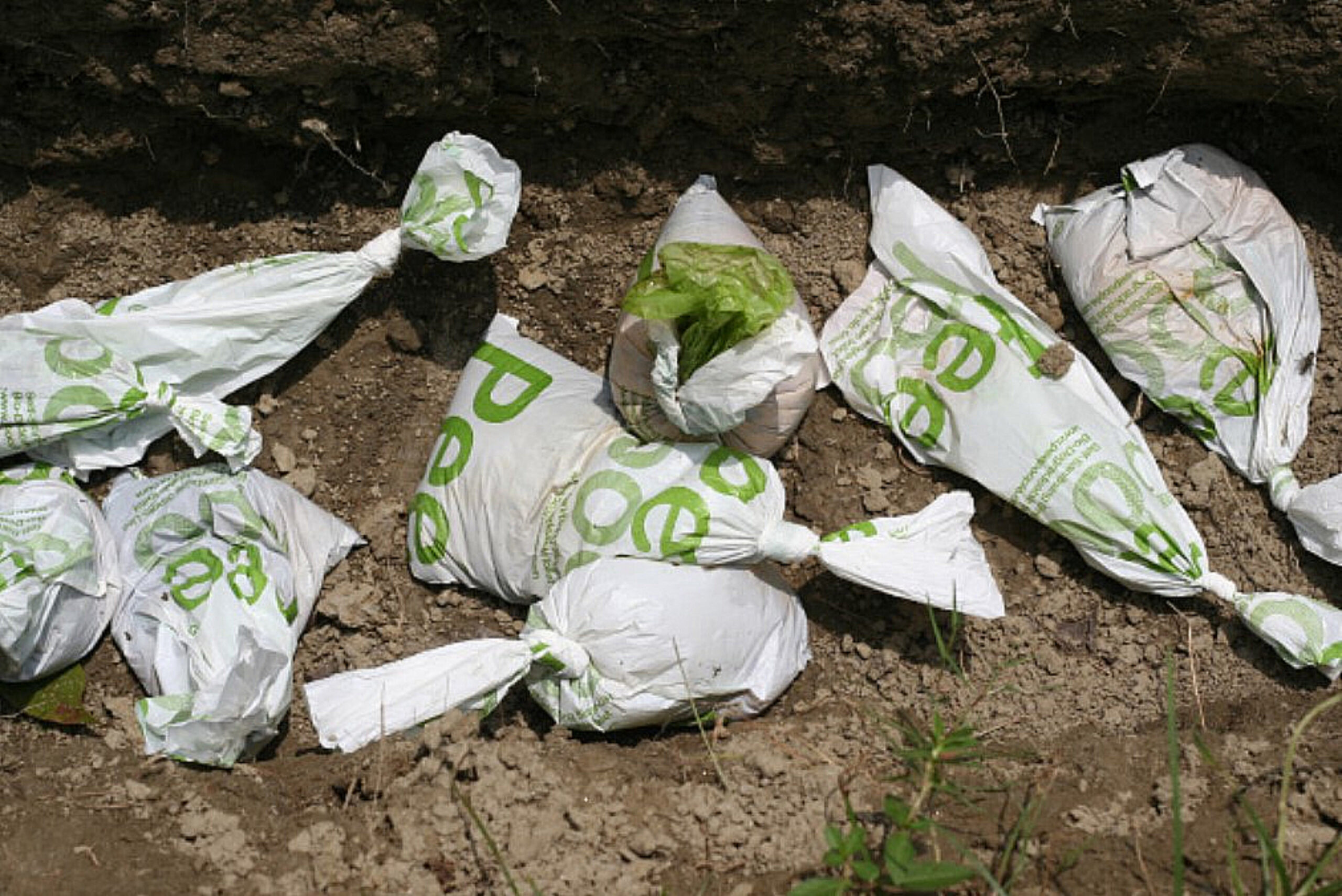

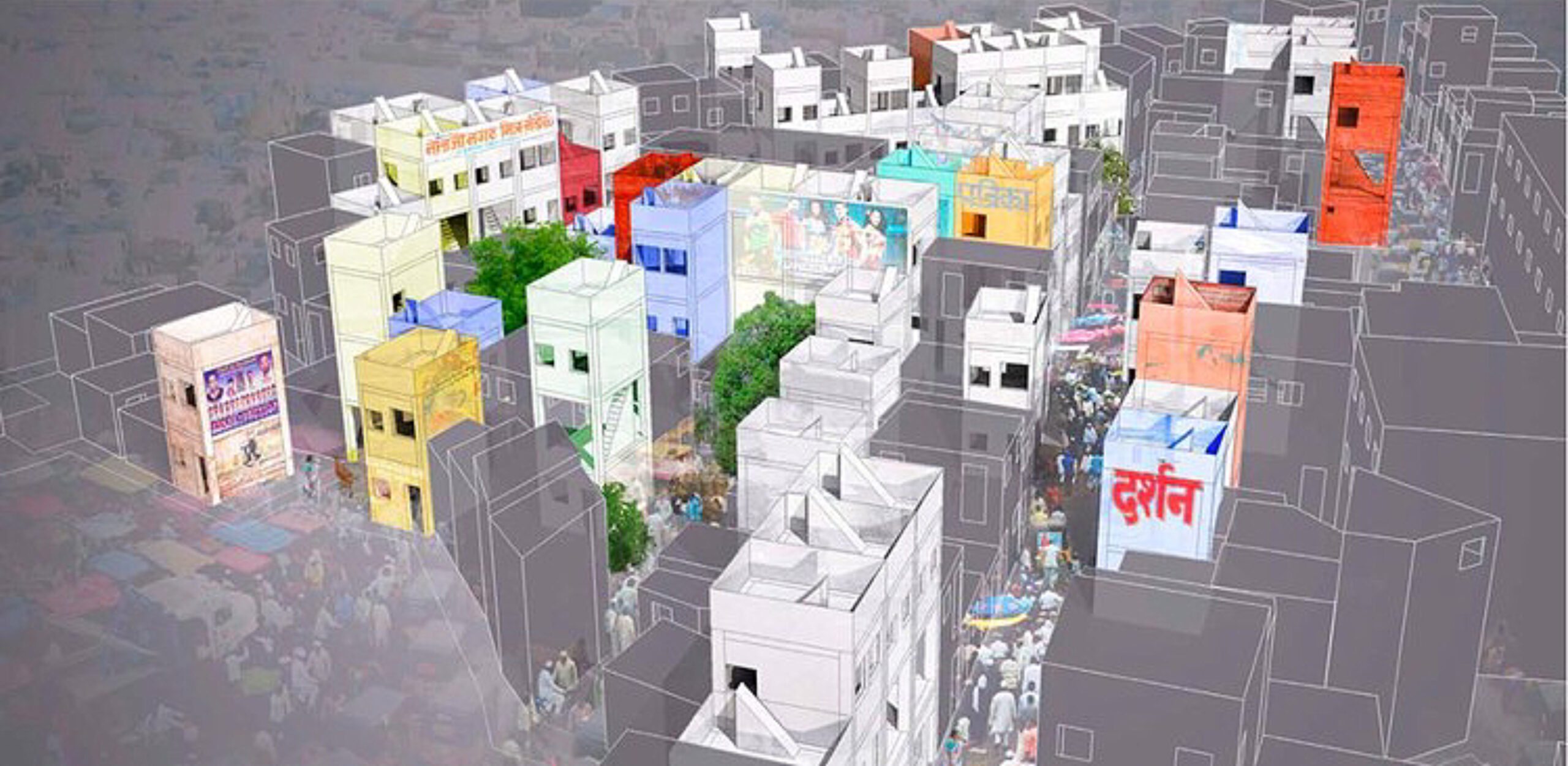

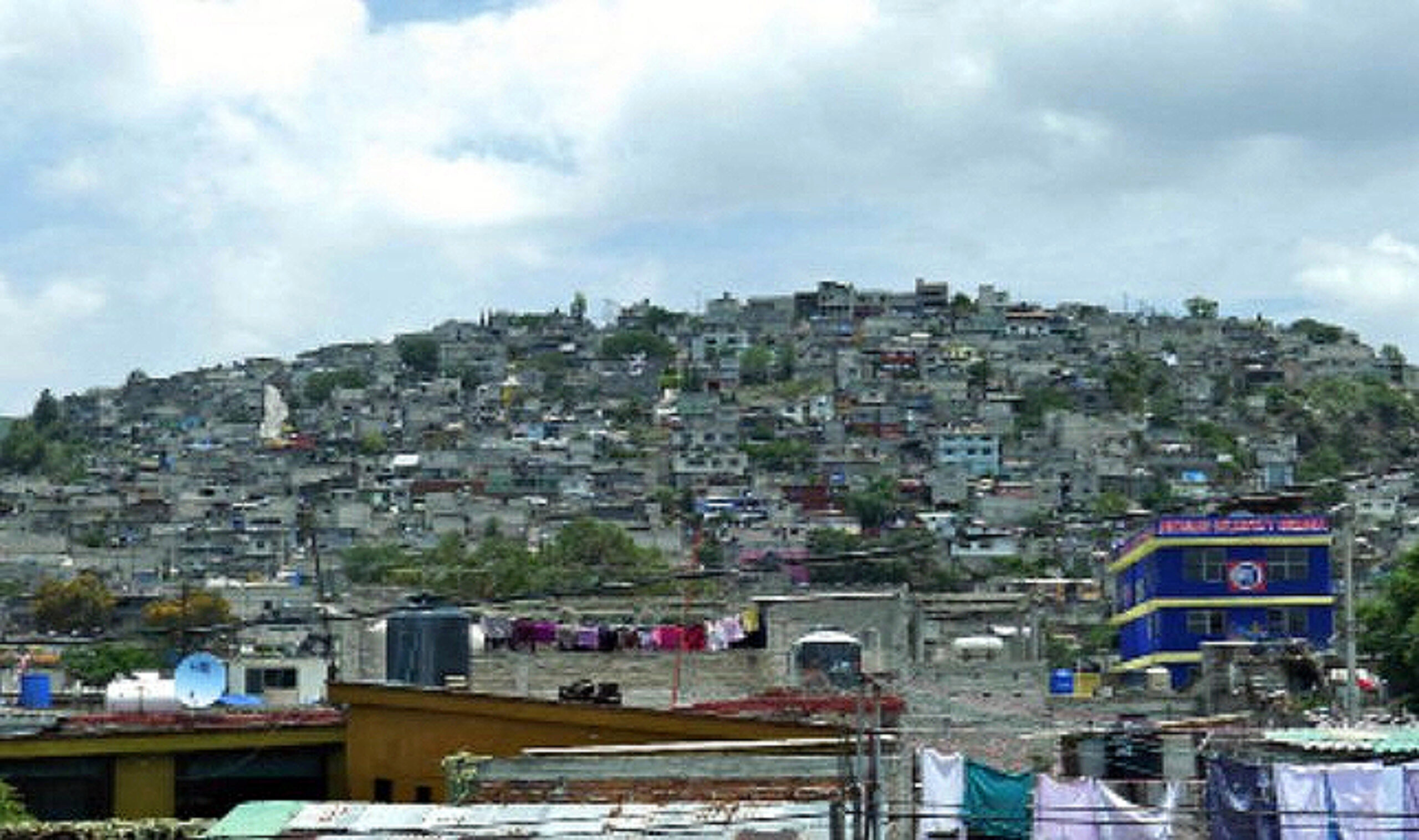

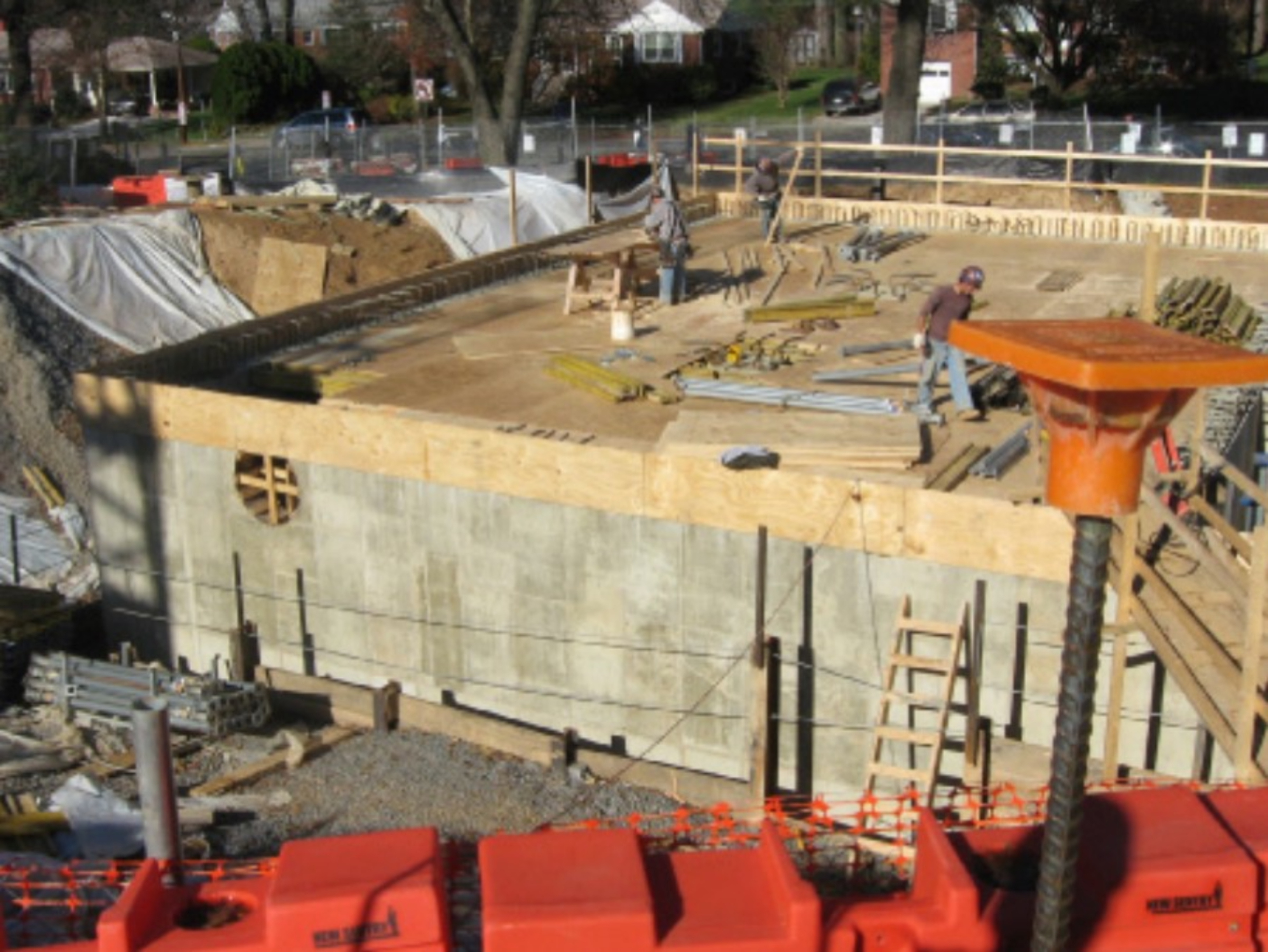
READ OR LEAVE A COMMENT